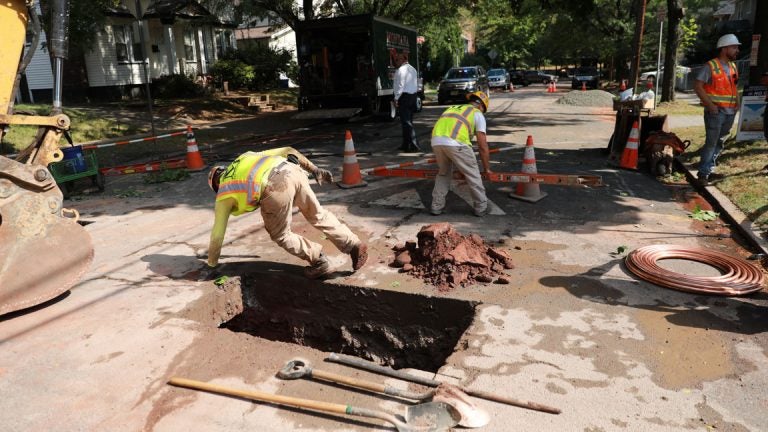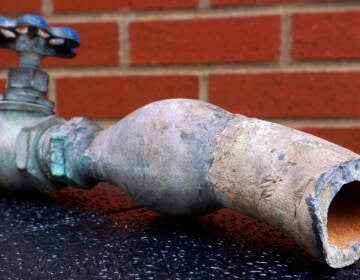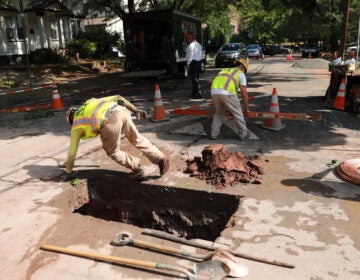More than 100 N.J. water systems may have unsafe lead levels
Analysis of state data finds that lead service lines are potentially harmful to more than 5 million area residents.

Replacing lead service lines in Newark.(Governor's Office)
This article originally appeared on NJ Spotlight
_
In another indication of how widespread lead contamination may be in our drinking water, a new analysis has found 104 New Jersey water systems with 161,000 lead service lines, a primary source of exposing consumers to unsafe levels of the contaminant.
The analysis by New Jersey Future focused on data self-reported by water systems to the state Department of Environmental Protection, potentially exposing more than 5 million residents who live in those service areas, the organization said.
The state Department of Environmental Protection projected the cost of replacing all the lead service lines at $2.3 billion this past January, but the estimate was based on 350,000 lead service lines provided by the American Water Works Association.
The extent of the crisis of lead service lines potentially making drinking water unsafe to consume has mushroomed in the past few months. The issue has been most notable in Newark, which is using in-home filters and a huge lead service line replacement program to reduce risks to consumers, albeit too slowly for many city residents.
“Lead exposure is a serious health threat across the state,’’ said Chris Sturm, managing director of water and policy for New Jersey Future. “These lead service lines have the potential to put everyone, particularly children and infants, at risk. Fortunately, this risk can be managed by effective corrosion control, flushing, and filters, and ultimately by the total replacement of lead service lines.’’
Projecting areas with high concentrations
In a statewide map, New Jersey Future projected areas most likely to have lead service lines. It suggested that residents in those areas concerned with high lead concentrations can contact their water systems to request results from water tests in the area.
“In the end, to effectively and efficiently replace lead service lines, comprehensive state legislation is needed,’’ said Gary Brune, policy manager for New Jersey Future. Jersey Water Works, a statewide collaborative of organizations interested in upgrading the state’s water infrastructure, is expected to issue a report later this month on eliminating lead in water supplies.
Click here to check out a Lead Water Service Lines chart.
WHYY is your source for fact-based, in-depth journalism and information. As a nonprofit organization, we rely on financial support from readers like you. Please give today.



